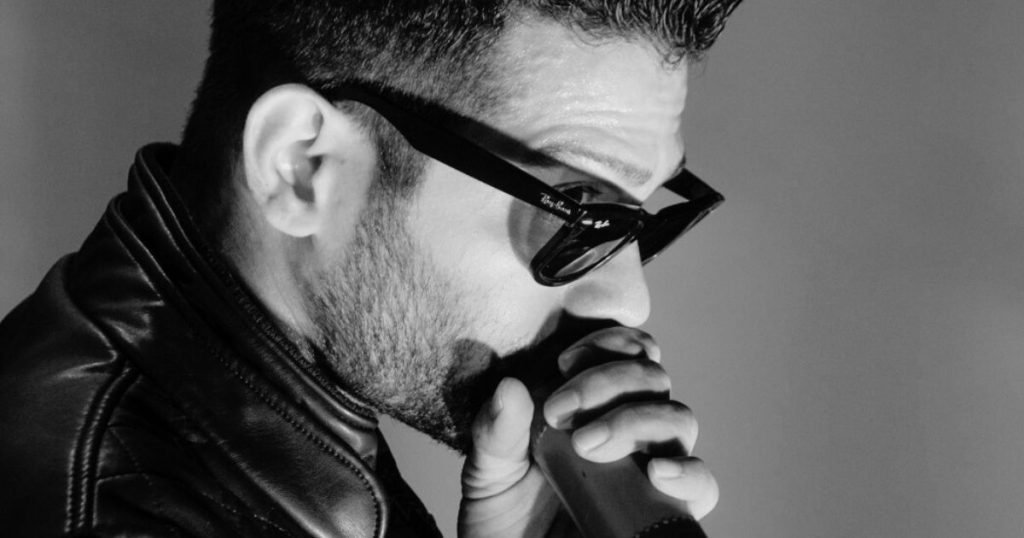

Clive Vaz
Tell us more about your release?
I have an upcoming release called “Live from the Studio Videos” which will be coming out soon. It includes 5 videos, starting with the first one titled “Arabian Sea – Clive Vaz” featuring Rahul Bakshi, a tabla player and percussionist.
For an old release, I have “Dissolved 2023,” a 3-track EP featuring Anastasia Mallarias. It’s an experimental blend of Opera Singing and Indian bansuri with ambient soundscapes. Additionally, “Raina (2019)” and “Arabian Sea (2020)” are two tracks from this EP that have been my most played and listened-to.
Write a short paragraph about your release (your inspiration, process, genre, instruments used in it, and the story behind the creation).
My release is a reflection of my diverse musical journey. As a multi-instrumentalist, I play concert Western Flute, Bansuri (Indian Bamboo flute), Hulusi (Chinese reed flute), and Didgeridoo (Australian traditional aboriginal instrument). My creative process begins with spontaneous melodies and soundscapes that I record on my phone during practice sessions. When I get to my studio and fire up my DAW, I start with a foundational instrument, whether it’s guitar, ukulele, flute, or keys. From there, I build upon the initial idea, letting new concepts develop organically. What sets my music apart is my commitment to crafting each part myself; I never use ready-made loops. While I do incorporate samples occasionally, the majority of my work involves recording live instruments. Genre-wise, I strive to break free from constraints, making whatever comes to mind, although I do consider the label’s style when needed. My collaboration with Cafe De Anatolia has been a fruitful one, as they’ve supported my diverse musical endeavours and released my work.
What is your connection with Cafe De Anatolia? (Write about your release with Cafe De Anatolia)
I discovered Cafe De Anatolia (CDA) in 2018 through YouTube, and I was thrilled by the resonating vibes of their music. Many of my early creations featured a fusion of oriental and Indian sounds, aligning with CDA’s style. I reached out to them and shared my music, leading to a partnership where they signed me and released four EPs, totaling around 22 tracks in 2019. Since then, the journey with CDA has continued, with me releasing two albums and three more EPs. Their openness to different musical styles and unwavering support has been instrumental in my artistic growth.
What do you believe sets your music apart from others in the industry? What makes your sound unique?
Authenticity and passion are the keys to my unique sound. I stay true to my own musical identity, never attempting to emulate others. My goal is to provide listeners with a memorable and unforgettable experience by simply enjoying the process of making music. What sets my sound apart is the inclusion of live instruments in my performances—flutes, didgeridoo, jawharp, and percussions—all played live. This personal touch adds magic to the experience, making it distinct. My live gigs are particularly experimental, featuring live improvisation that creates a unique and unrepeatable musical conversation with each audience. This spontaneity is the beauty of music.
Tell us more about yourself and your music career.
I grew up surrounded by music, listening to both Western and Hindustani classical music. Despite limited resources and no formal training, I had a natural affinity for instruments. I taught myself to play various instruments, including the flute and guitar, through observation and experimentation. Music took a back seat during my studies and college years, but I continued to play for personal pleasure.
After a long hiatus, I decided to pursue music professionally. I quit my job, delved into learning music production, mixing, arranging, and how to use DAWs. I played with several bands and eventually started my solo project, Ayuddha, in 2011. Over the past three decades, I’ve collaborated with numerous artists, performed nationally and internationally, and dedicated the last 13 years to a full-time career in music.
How would you describe your style of music?
My music can be described as introspective, serene, dreamy, thoughtful, and uplifting. It has the power to become addictive, drawing listeners into a contemplative and immersive experience.
Where do you find inspiration?
I find inspiration in everything around me—the air I breathe, the clouds, the sky, the moon, rain, wind, plants, animals, and nature. However, this inspiration truly comes alive when there is inner peace and harmony within me.
Describe how music is important to society.
Music and the arts are vital to society because they offer a unique form of expression that transcends our basic human needs. Music has the power to help us transcend and discover our true selves. Its importance lies not in convincing society but in individuals feeling and understanding its transformative impact.
What is your best time of day to create?
Creativity knows no bounds when it comes to time. It can strike early in the morning or late at night. For me, it’s all about embracing creativity whenever it flows.
Who are your musical influences?
I draw inspiration from a wide range of artists across the globe. Some of my influences include Ustad Vilayat Khan (Sitar Maestro), Ustad Zakir Hussain, classical composers like Bach, Mozart, and Vivaldi, iconic figures like Michael Jackson, The Beatles, Kurt Cobain of Nirvana, Jim Morrison of The Doors, Paco De Lucia (Guitarist), Simon Posford (Producer and co-founder of Shpongle), Yanni (Armenian Composer), Demis Roussos (Opera singer), and many more. The list is extensive, as I appreciate and respect artists from various genres and styles, including Thomas Newman and A.R. Rahman.
In summary, my journey in music has been shaped by a diverse array of influences, allowing me to create music that reflects my unique perspective and passion for artistic expression.

